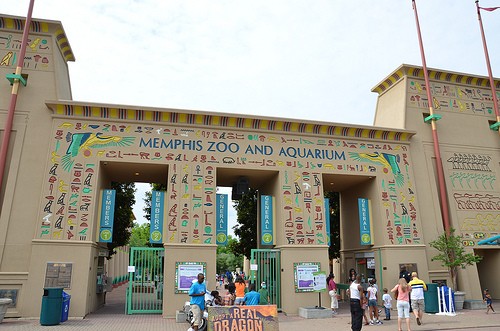
The Memphis Zoological Society has finally released an economic impact study performed jointly by the Sparks Bureau of Business and Economic Research and the Center for Manpower Studies at the University of Memphis.
The study, hinted at and excerpted from by zoo spokespersons on earlier occasions, was made public last Friday (the 13th). Whether the legendary symbology of that date comes into play is as yet unknown. What is fairly certain, however, is that the study will not resolve the ongoing dispute between adherents of the Overton Park Greensward, on one hand, and members of the zoo establishment on the other.
The source of that dispute, which has mostly to do with allowing zoo visitors to park their cars on the Greensward, is no secret. It involves the age-old dichotomy between quality-of-life issues and the economic bottom line.
On the latter side of the divide are the city’s business elite and the Memphis City Council majority that is responsible for a controversial March vote that gave the zoo control over the Greensward.
On the former side of the divide is the environmentalist community and what would appear, from the volume of protests, to be a sizeable hunk of local citizenry determined to keep the Greensward as parkland.
The best things in life are free, would say the Greensward defenders. Yes, but there’s the rub; they bring in no revenue, the zoo partisans might counter, employing the newly released impact study to buttress their case. The study goes into considerable detail, but its thrust is that the million or so people who visit the zoo annually result in quantifiable advantages for the local community: $83 million in goods and services, $32 million in salaries, wages, and benefits for the 879 zoo employees, and nearly $5 million in state and local taxes.
No sooner had the document bearing these stats landed in public territory, however, than a group calling itself Physicians for Urban Parks issued a counter-claim, signed by an impressive number of local medical people, charging that the study lacks raw data to support its claims, was carried out unprofessionally, and amounts to little more than a “promotional device” whose figures “have been used again and again to justify the Memphis Zoo being given rights to Overton Park.”
The doctors’ letter singles out one specific flaw, a claim in a portion of the economic impact study regarding visitor expenditures alleging “that $364 is spent per party, per visit, on transportation.” Challenging that assertion, the letter cites the 2013 Tennessee visitor profile, “which the zoo publication uses as a data source” and which states that 94 percent of visitors come to Tennessee by automobile. “[T]herefore, that figure must apply almost entirely to gas stations. Using a price of $3.60 per gallon for regular unleaded and a 20-gallon gas tank, the publication contends that the average zoo visitor fills up the gas tank in Memphis five (5) times over a 2.16-day period. Obviously, the numbers are radically inflated, or simply wrong.”
We are in no position to adjudicate this difference of opinion, other than to recall the old adage that anybody can use statistics to prove anything, and to conclude the obvious: That the zoo’s release of its report will not close the argument, and it remains to be seen whether the city-sponsored on-again, off-again mediation talks will manage to do so.
Editor’s Note: The editorial says that the Zoo study was made public last Friday, May 13. That is incorrect. The study was originally released a year ago (May 6, 2015 for the digital copy and May 7, 2015 for the hard copy). It was re-released on May 13 of this year.